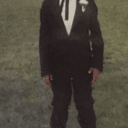Opinion; San Francisco Chronicle, January 15, 2005
The governor, under California law, has the power to perform an act of mercy by commuting a sentence of death to life in prison without possibility of parole. We urge him to exercise this power by granting clemency to Donald Beardslee, who is scheduled to be killed by the state of California at 12:01 a.m. on Jan. 19.
We base our appeal not only on specific points of law, but on our broader belief in the dignity of all human life. The violent crimes for which Beardslee has been convicted are atrocious. They are undoubtedly the source of excruciating pain for the victims’ family and friends. But the answer to this pain is not more violence.
In the U.S. Catholic Bishops’ 1994 statement, “Confronting a Culture of Violence,” the signers observed that, “Increasingly, our society looks to violent measures to deal with some our most difficult social problems, [including] crime. But violence is not the solution; it is the most clear sign of our failures.“
Similarly, the General Assembly of the Presbyterian Church said in 1959, “the use of the death penalty tends to brutalize the society that condones it. ” Likewise, the United Methodist Church places value on restorative justice rather than that of retribution; the Episcopal Church has stated its opposition to the death penalty since 1957.
We cannot teach that killing is wrong by killing; nor can we stop it. There are many studies showing that crime is not deterred by capital punishment, thus executions are more about revenge than resolution. We object not only to what the death penalty does to the offender, but what it does to us: It undermines our respect for life.
The governor has before him the petition for clemency submitted on behalf of Beardslee. We urge him to read it carefully. It contains not only the tragic circumstances of two people who lost their lives, but also the tragic story of how Beardslee’s fate became intertwined with theirs.
The governor will learn that the jury in Beardslee’s case was unaware of the extent to which his actions were controlled by lifelong brain damage, a condition compounded by two additional head injuries — one in a car crash in 1961, and a second caused when a falling tree struck him in the head in 1968. The jury that sentenced him to death never saw the reports, nor heard conclusions drawn by the various physicians who examined Beardslee, that speak to his mental illness and brain dysfunction. The governor will learn that although the jury requested information from the trial court about the punishments imposed on Beardslee’s co-defendants, the court refused to provide information showing that the 3 co-defendants who initiated and directed the crimes were either not charged, successfully plea bargained for a lesser sentence, or received a life sentence.
Beardslee’s role in the crimes, compared to those of the co-participants and considering his limited mental function, does not warrant the ultimate punishment. But barring the governor’s clemency, the injustice of these disparities will result in the state taking Beardslee’s life.
The governor will learn that Beardslee, far from seeking to avoid detection, confessed his involvement completely and walked the investigating officers through every step of the crime. After turning in the other participants, Beardslee also testified against them — obviously with no benefit to himself.
Finally, the governor will learn that the jury’s decision to sentence Beardslee to death was based upon the mistaken belief that he would pose a danger to other inmates and guards if sentenced to life without possibility of parole. Since his incarceration, Beardslee has been a model inmate. Comments by California Department of Corrections staff describe his cooperative, helpful nature, extremely positive attitude, hard work and dedication toward self-improvement. In his time at San Quentin Prison, Beardslee has maintained an exemplary record without a single rules violation in more than 20 years of incarceration.
Throughout history, great leaders have been remembered as much for their compassion as their conquests. Abraham Lincoln is honored for his sorrowful wisdom and deep sensitivity as much as his fortitude in the time of our nation’s greatest peril. John F. Kennedy fought the Cold War not only with military might, but also with the Peace Corps. Ronald Reagan, considered by many to have put the final nail in the coffin of Soviet Communism, is also remembered as the last California governor to grant clemency in a death penalty case — in 1967 to Calvin Thomas, who suffered from brain damage similar to Beardslee’s.
We recognize that one of the governor’s primary responsibilities is to protect the citizens of California from violent crime. Commuting Beardslee’s sentence to life without possibility of parole is not a sign of weakness, but a strong and unmistakable statement that our society chooses to protect itself without stooping to the crime for which Beardslee was convicted — premeditated murder. We urge him to exercise his right of granting clemency to save Beardslee’s life. The right to take his life remains with God.
Bishop Richard J. Garcia, Bishop Jerry A. Lamb, Bishop Beverly J. Shamana, Bishop David G. Mullen, Rev. David Thompson
(The Rev. Richard J. Garcia is the Roman Catholic Auxiliary Bishop for the Diocese of Sacramento; Bishop Jerry A. Lamb is the Bishop of the Episcopal Diocese of Northern California; Bishop Beverly J. Shamana is the Bishop of the San Francisco Area of the United Methodist Church; Bishop David G. Mullen is the Bishop of the Sierra Pacific Synod of the Evangelical Lutheran Church of America, and The Rev. David Thompson is the pastor of Westminster Presbyterian Church in Sacramento)

